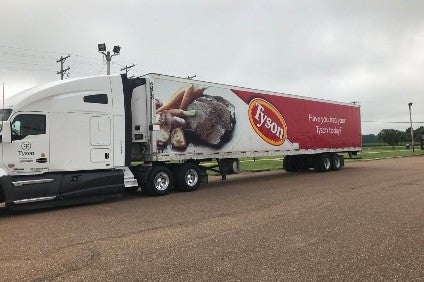
US meat major Tyson Foods has announced it is introducing sustainable beef production practices on more than five million acres of cattle-grazing land.
Tyson claims to be the first US food company to introduce such a programme on this scale.

Discover B2B Marketing That Performs
Combine business intelligence and editorial excellence to reach engaged professionals across 36 leading media platforms.
The Jimmy Dean and Hillshire Farm brands owner said it will source cattle from BeefCARE-verified beef producers.
BeefCARE is a third-party sustainability verification programme for cattle ranchers. It uses third-party audits to verify that farmers and ranchers are using best practices in caring for animals, the environment, and the people and communities who support them.
Tyson Foods said it will also work with The Nature Conservancy to evaluate and enhance the environmental components of the current BeefCARE programme.
Steve Stouffer, group president of the company’s Tyson Fresh Meats division, said: “We recognise the importance of sustainable beef production practices that take care of people, the planet and animals.

US Tariffs are shifting - will you react or anticipate?
Don’t let policy changes catch you off guard. Stay proactive with real-time data and expert analysis.
By GlobalData“Our goal is to work with ranchers to verify, and when possible, improve those practices so that we can be transparent with our customers and consumers about how cattle in our supply chain are raised.”
Tyson said this latest initiative builds on its goal for beef sustainability. In 2018 it became the first US protein company to license Progressive Beef, a quality management system designed for cattle-feeding operators that sell to companies like Tyson.
This year Tyson will purchase more than three million Progressive Beef-certified cattle, which represents more than half of the cattle in the company’s supply chain.



